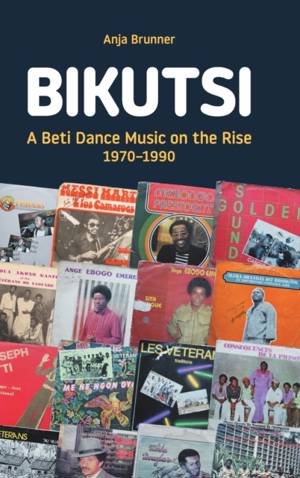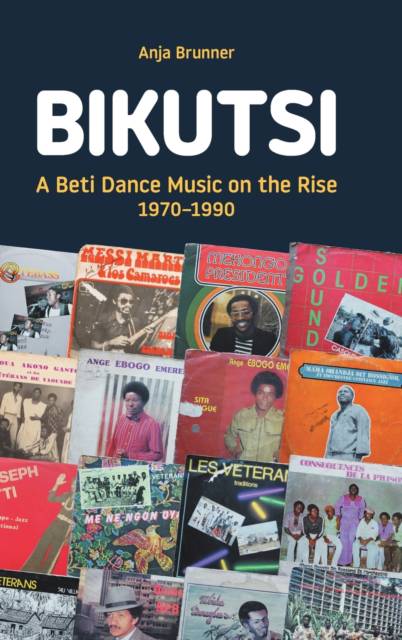
Bedankt voor het vertrouwen het afgelopen jaar! Om jou te bedanken bieden we GRATIS verzending (in België) aan op alles gedurende de hele maand januari.
- Afhalen na 1 uur in een winkel met voorraad
- In januari gratis thuislevering in België
- Ruim aanbod met 7 miljoen producten
Bedankt voor het vertrouwen het afgelopen jaar! Om jou te bedanken bieden we GRATIS verzending (in België) aan op alles gedurende de hele maand januari.
- Afhalen na 1 uur in een winkel met voorraad
- In januari gratis thuislevering in België
- Ruim aanbod met 7 miljoen producten
Zoeken
Omschrijving
This book offers the first ethnographically informed, in-depth historical study of the Cameroonian popular music genre bikutsi. The thriving dance music in Cameroon's day-to-day life has its foundation in the specific historical processes of the 1970s and 1980s, which led to the recognition of bikutsi as a distinct genre of Cameroonian dance music. Examining these processes in detail, this book analyses the various factors involved in the rise of a popular music genre within a national music scene. The book begins by tracing the roots of bikutsi in the musical traditions of the ethnic groups of the Beti who live in and around Cameroon's capital Yaounde, as well as in the manifold popular dance music practices fashionable in mid-20th-century Cameroon. The volume then considers the musical work of successful groups and musicians, framing their musical practices and success within the socio-political circumstances, musical environment, and ambitions of individuals. Offering an explanation for the changes in Cameroon's musical life, these analyses illustrate the interplay between the innovative ambitions of individual musicians, a specific political situation within the power structure of the post-colonial state, dedicated individuals in media and the music market, and technological changes in recording and disseminating music.
Specificaties
Betrokkenen
- Auteur(s):
- Uitgeverij:
Inhoud
- Aantal bladzijden:
- 200
- Taal:
- Engels
- Reeks:
Eigenschappen
- Productcode (EAN):
- 9781781797853
- Verschijningsdatum:
- 1/09/2021
- Uitvoering:
- Hardcover
- Formaat:
- Genaaid
- Afmetingen:
- 156 mm x 234 mm
- Gewicht:
- 480 g

Alleen bij Standaard Boekhandel
+ 306 punten op je klantenkaart van Standaard Boekhandel
Beoordelingen
We publiceren alleen reviews die voldoen aan de voorwaarden voor reviews. Bekijk onze voorwaarden voor reviews.









